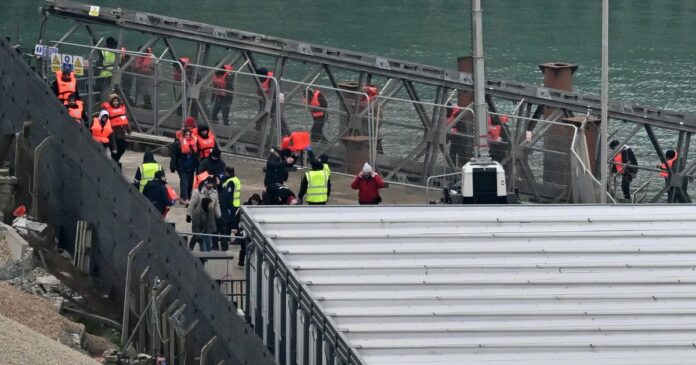The EU approved on Thursday a migration deal that will see thousands of asylum-seekers, potentially including children locked up, according to Politico.
The Migration Pact, approved by EU ambassadors, is seen by NGOs and the political left of pandering to the far-right as it proposed the detention of unaccompanied minors deemed to be a security risk, and will, in certain cases, see migrants locked up in detention centers for up to six months.
“The theory is that by making people suffer with hostile policies, you create a deterrent, and fewer people will arrive. But in practice, people will still arrive because they have no choice, so there’s no deterrent effect – just the suffering,” said Catherine Woollard, Director of the European Centre on Refugees and Exiles.
Ukrainian refugees will be exempt from restrictions under the EU’s temporary protection directive, under which they enjoy freedom of movement but as some activists point out, this migration deal seems to be pointed at asylum seekers from Africa and the Middle East.
According to two diplomats, there was a lot of emotion, including applause, as ambassadors approved the pact, a process that has been in discussion since 2016, when millions of refugees reached Europe’s border during the bloc’s migration crisis.
When a preliminary agreement was struck on the deal in December, Cornelia Ernst, an MEP from Germany’s leftist Die Linke, wrote on X the pact was “a dramatic day for the rights of people seeking protection in Europe: a dream of the right-wing populists in the EU coming true.”
This rightwing shift is, however, highly unlikely to solve Europe’s migration issues, since it would either see many migrants jailed indefinitely — hard to stomach for many in a continent that wants to be a beacon of human rights — or have to find a way to increase the number of migrants returned to the country from which they left (a figure that’s just around 20 percent at present and is seen as the Achilles heel of the bloc’s approach to migration).
But the rightward shift on migration can be seen at the national level in Europe.
In December, France’s Parliament passed legislation that contained so many hardline measures the far-right Marine Le Pen claimed it as an “ideological victory” for her own anti-immigration platform. Later, the country’s Constitutional Council censured a number of articles, including measures restricting access to social benefits and the introduction of immigration quotas.
Since the EU adopted its Return Directive in 2008, the push for more and quicker deportations has grown. As part of the Migration Pact the Commission has also appointed a Return coordinator. And returns remain the key issue.
The most critical issue for member states will be implementation: “It’s now a matter of making a paper reality work in practice” said an EU diplomat, who was granted anonymity to speak candidly about the deal.
The pact will now be passed to the European Parliament for vote and approval before it will be implemented.


